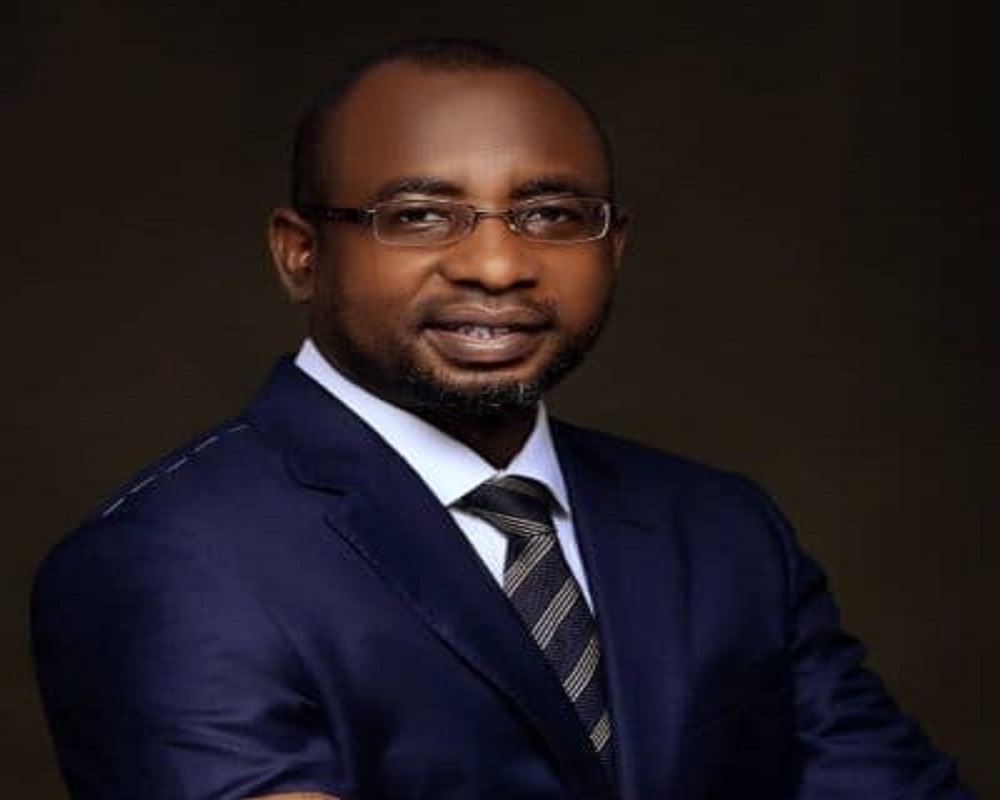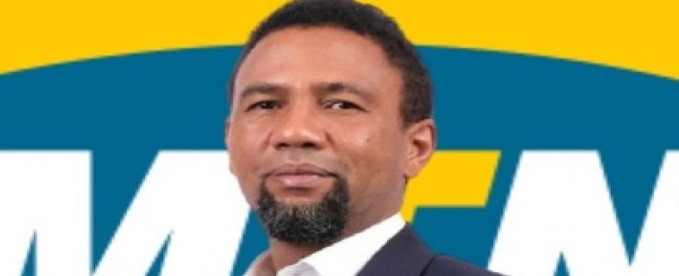Telecom
Digital Economy: DG NITDA Attributes Unprecedented Achievements to Existence of Shared Vision, Partnership and Collaboration in the Ministry

The existence of shared vision, partnership and collaboration amongst the Ministry of Communications and Digital Economy, its parastatals and the sector’s stakeholders have been identified as one of the reasons for the unprecedented 17.09 percent contribution of the digital economy sector to the Gross Domestic product of the second quarter of 2021.
Mallam Kashifu Inuwa, director general, National Information technology Development Agency, disclosed this in a paper titled “The Nigerian Digital Architecture: The Journey So Far.” The paper was presented at the World Fintech Festival, 2021. An event jointly hosted by Nigeria and Singapore.
Inuwa who was represented at the event by the Agency’s Director of e-Government Development and Regulations, Dr Vincent Olatunji, stated that the way forward for Nigeria in attaining vintage position in the global digital economy remains in the country’s resolve to public private partnership initiatives, funding, human capital, advocacy and continuity.
He said, “The digital economy, from Nigeria’s perspectives revolves around the utilization of digital transformation, knowledge and technology to deliver goods and services, economy that drives on the Fourth Industrial Revolution, (4IR), convergence of all sets of digital innovation that drives social economic development and economic output created from digital technologies and innovations.”
According to the DG, the redesignation of the Federal Ministry to Ministry of Communications and Digital Economy and the launch of the National Digital Economy Policy and Strategy, (NDEPS) were responsible for the paradigm shift in Nigeria’s digital economy adding that NDEPS was developed to reposition the Nigerian Economy in order to take advantage of the many opportunities that digital technologies provide.
He said that the eight pillars of NDEPS align well with the Economic Recovery and Growth Plan of the Federal Government and address the three key focus areas of Mr. President, namely economic development, anti-corruption and security noting that the various policies and strategies put in place by the ministry and being executed by its parastatals laid the foundation for the success recorded so far.
While listing Nigeria’s achievements through the Strategic Roadmap and Action Plan, he said the Nigeria Data Protection Regulation initiative has impacted the Ease of Doing Business, cross border data flow, creation of over 3000 jobs, international recognition, creation of a new sector worth N5.2 billion and protection of Nigerian against digital colonialism.
On IT project clearance, he said the initiative has saved the country over N30 billion and reduction in IT project failure in the country while under the Digital Literacy and Skill programme, over 20,000 Nigerians have been trained and 250,000 enrolled in both NITDA Academy and Digital Nigeria dot gov dot ng platform.
He concluded that “digital economy continues to play an important role in our developmental agenda as we move into the age of artificial intelligence.”
Telecom
PAT Taps Osi as CEO

Pan African Towers (PAT), a Nigerian infrastructure provider serving 9mobile and Spectranet, has appointed Echezona Osi as chief executive officer.

Echezona Osi
Adefolarin Ogunsanya, company’s, board chairman, explained in a statement that Osi would succeed Oladipo Badru, whose tenure lasted nine months in acting CEO position. Osi has more than 28 years of experience in the telecommunications sector across various regions of Africa.
Prior to his appointment as CEO, he had served as the head of network deployment at Airtel Nigeria, operations director and chief technical information officer at MIC Tanzania, chief technology officer roles at IPT PowerTech Nigeria, Rhino Niger Networks and Biswal Nigeria.
He obtained a degree in electrical/ electronic engineering from the University of Benin and a postgraduate diploma in data science and business analytics from the University of Texas.
Telecom
NCC Introduces N10m Licence Fee for Bulk SMS Service

Companies sending bulk international text messages, also known as Application-to-Person (A2P) messages, will now have apply for a licence that costs N10 million.

This is part of new rules introduced by the Nigerian Communications Commission (NCC) aimed at cleaning up the system, fighting fraud, blocking spam messages and stopping money from leaving the country unchecked.
These A2P messages are the kind customers get from banks, online stores, hospitals and political campaigns, automated texts sent from apps to their phones.
According to the commission, the bulk international text message system has been poorly regulated, allowing misuse and invasion of privacy.
“The International SMS Service Ecosystem in Nigeria has not been fully brought under regulatory control. It has been observed that the excessive use of the Short Message Service has led to fraud, spam and illegal activities,” the NCC said.
The regulator warned that without action, the problem would worsen as more people use mobile phones and digital services.
To solve this, the NCC is creating a central platform, or gateway, through which all international bulk text messages must pass through.
The agency said this would help to monitor messages in real time, ensure proper fees are paid, and make sure the money stays in Nigeria where it can contribute to the economy.
As part of the incoming change, service providers must follow strict rules, including strong data protection, spam filters, and message encryption.
Also, they must also work with local mobile networks and make sure all messages come from a verified sender
The NCC warned that any message without a proper sender ID will be blocked and not delivered to users.
To protect users from unwanted texts, the new rules say companies must get clear permission before sending any promotional content.
The rule also says people must also be able to choose whether they want to receive such messages or not.
Companies are now required to keep records of all messages for at least six months and must clearly state all charges involved.
The NCC said fees for help requests, cancellations, or service info must be transparent and not include hidden charges.
The commission will issue licences to several providers to encourage healthy competition but may limit new licences if needed.
Only companies that show they can stop fraud and safely deliver messages will be allowed to operate. They must also regularly report their message traffic and finances to the NCC.
It warned that any company that breaks the rules risks getting fined, suspended, or having its licence revoked.
Offences like charging illegal tariffs, ignoring security rules, or avoiding taxes will be punished, the NCC said.
The commission added that the new rules follow the Nigerian Data Protection Act 2023 and support the federal government’s goal of strengthening cybersecurity and controlling Nigeria’s digital space.
The framework will also be reviewed from time to time to keep up with new technology and market trends.
Telecom
MTN Nigeria Targets $1Bn Cloud Market with Largest Modular Data Centre

MTN Nigeria has launched what it claims is the country’s largest prefabricated modular data centre, marking a bold push into the country’s fast-growing cloud market and taking aim at global giants such as Amazon Web Services, Microsoft Azure and Google Cloud.

Karl Toriola, CEO, MTN Nigeria.
The shift comes as demand for cloud services in Nigeria soars — driven by the uptake of mobile apps, fintech tools and e-learning platforms — while foreign providers have become costlier in the wake of the naira’s sharp devaluation.
“This is one of the biggest data centres in West Africa and probably one of the biggest in Africa,” said Karl Toriola, CEO, MTN Nigeria.
He described the new Tier III-certified facility, with locally hosted cloud services, as “transformative for the technology ecosystem in Nigeria and very supportive of the federal government’s agenda”.
MTN Nigeria, the country’s largest telecoms provider, has so far invested $120m in the first phase, delivering an IT load of 4.5MW. A second phase, set to double capacity to 9MW, is budgeted at $135m.
“We already have data centres that are running our existing capacities,” Toriola said.
“We will go to 9MW in short order, possibly 14MW, and we can expand even further.”
He said the facility would allow local hosting for tech developers, large enterprises including banks and oil companies, and government agencies — markets long dominated by foreign cloud providers.
“Multinational companies such as Netflix, Facebook and Instagram can also host a lot of their data here. That improves the quality of service and reduces the cost of storage,” he added.

 Broadcasting2 days ago
Broadcasting2 days agoNigeria Week Ahead: Inflation, Oil and Naira in focus

 News2 days ago
News2 days agoEFCC: Accusations Against Our Chairman Are Baseless and Misleading

 Telecom16 hours ago
Telecom16 hours agoMTN Nigeria Targets $1Bn Cloud Market with Largest Modular Data Centre

 General News16 hours ago
General News16 hours agoWoodhall Capital and Partners Launch ₦1.5Bn Fund

 E-Business16 hours ago
E-Business16 hours agoFirm Highlights Top Risks of Quantum Computing

 General News16 hours ago
General News16 hours agoAM Best Reaffirms Stable Outlook for Cyber Insurance Market

 Telecom16 hours ago
Telecom16 hours agoNCC Introduces N10m Licence Fee for Bulk SMS Service

 General News16 hours ago
General News16 hours agoBurna Boy Distances Himself from Meme Coin, Labels Crypto as Fraud
























